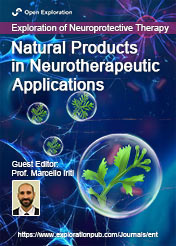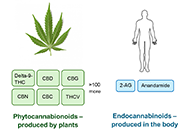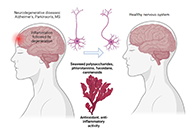
Natural Products in Neurotherapeutic Applications
Guest Editor
Prof. Marcello Iriti E-Mail
Department of Biomedical, Surgical and Dental Sciences, Università degli Studi di Milano, Milan, Italy
Research Keywords: functional foods; nutraceuticals; mediterranean diet; nutritional therapy; pharmaconutrients; phytotherapeutics; bioactive phytochemicals; medicinal and food plants; food security
About the Special lssue
By neuroprotection we mean the strategies and related mechanisms capable of defending the central nervous system (CNS) from neuronal damage due to both acute (e.g. stroke or trauma) and chronic (e.g. Alzheimer's disease, AD and Parkinson's disease, PD) neurodegenerative disorders. Among these strategies, phytotherapy can represent a valuable resource in the prevention rather than in the treatment of some CNS pathologies, in association with a healthy lifestyle that includes correct eating habits and moderate physical activity. As a complementary and alternative therapy, phytotherapy refers to the medical use of plant organs (leaves, stems, roots, flowers, fruits and seeds) for their healing properties. Generally, herbal products contain complex mixtures of active components (phytochemicals), including phenylpropanoids, isoprenoids and alkaloids, and it is often difficult to determine which component(s) of the herb(s) have biological activity. Since oxidative stress and neuroinflammation deriving from neuroglial activation, at the level of neurons, microglial cells and astrocytes, are key factors in the etiopathogenesis of both neurodegenerative and neurological diseases, emphasis will be placed on the antioxidant, anti-inflammatory and anti-amyloidogenic activity exerted by specific phytochemicals and phytotherapeutics.
Keywords: neurodegenerative diseases; amyloidosis; oxidative stress; neuroinflammation; neuroaging; phytotherapeutics; herbal remedies; bioactive phytochemicals; nutraceuticals; functional foods; ethnopharmacology
Published Articles

